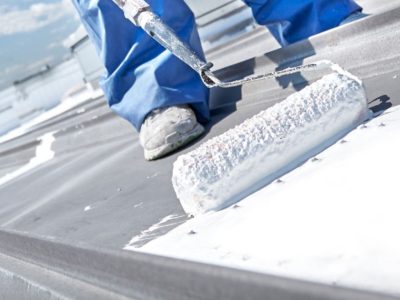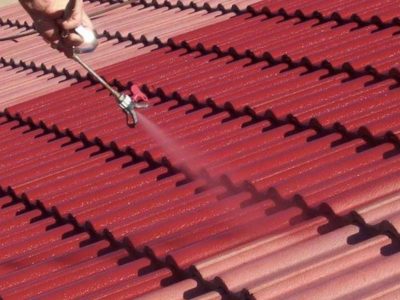A clean kitchen drain is essential for maintaining a healthy and functional kitchen. In this article, we will discuss the importance of keeping your kitchen drain clean, the common causes of clogged drains, signs of a clog, and how to prevent them. We will also explore natural ways to clean a clogged drain and when it’s time to call a professional plumber. By following these tips, you can ensure that your kitchen drain stays clear and odor-free.

Why Is It Important To Keep Kitchen Drain Clean?
Maintaining a clean kitchen drain is crucial for the overall hygiene and functionality of your kitchen. A clean drain helps prevent clogs, eliminates foul odors, and ensures efficient water flow.
Regular maintenance of your kitchen drain not only improves the cleanliness of your cooking space but also plays a significant role in preventing costly blockages. By incorporating simple yet effective cleaning methods like pouring hot water down the drain regularly, using a mixture of vinegar and baking soda to break down buildup, and ensuring food particles are properly disposed of, you can maintain a smooth-running drain system.
These practices help preserve the lifespan of your pipes and avoid plumbing issues down the line. So, make it a habit to prioritize your kitchen drain maintenance for a healthier and more functional kitchen environment.

What Are The Common Causes Of Clogged Kitchen Drains?
Clogged kitchen drains can result from various factors, including grease build-up, food scrap accumulation, soap scum residue, and hair entanglement within the pipes.
Grease, a common culprit in clogged drains, often coats the inner walls of the pipes, leading to blockages over time. Food residues can solidify and create stubborn obstructions that hinder water flow. Soap scum can combine with mineral deposits, forming a tough layer that restricts drainage. The accumulation of debris not only causes slow draining but can also result in foul odors and potential pipe damage.
Regular maintenance through simple practices like using drain guards and avoiding pouring oil down the sink can significantly reduce the risk of clogs.
Grease Build-up
Grease build-up in kitchen drains occurs when fats solidify and accumulate, leading to blockages and reduced drainage efficiency.
This can significantly impact the functionality of your plumbing system, causing backups and potential damage. To avoid these issues, it is crucial to adopt proper disposal methods, such as collecting grease in a separate container and disposing of it in the trash.
Regular cleaning of drains with hot water and vinegar can also help break down grease build-up. Using garbage disposals to grind food scraps before rinsing can prevent grease from adhering to pipes, ultimately reducing the risk of clogs and costly repairs.

Food Scraps
Food scraps can cause blockages in kitchen drains, especially when large pieces accumulate and obstruct the flow of water through the pipes.
These obstructions not only lead to slow drainage but can also result in foul odors emanating from the sink. To prevent such issues, it is advisable to utilize sink strainers as a preventive measure. Sink strainers effectively catch food scraps before they enter the drain, minimizing the chances of clogs.
In addition to using strainers, regular cleaning of the drain with a mixture of baking soda and vinegar can help dissolve any existing build-up. Proper disposal techniques such as composting organic waste instead of rinsing it down the drain can further aid in maintaining clear and efficient drainage.

Soap Scum
Soap scum, a residue formed by soap and water interaction, can lead to the accumulation of sticky deposits in kitchen drains, impeding water flow and causing blockages.
When left untreated, soap scum can harden and solidify over time, making it even more challenging to remove. To tackle this issue effectively, one can create a homemade cleaning solution by mixing dish soap, vinegar, and hot water.
The dish soap helps to break down the greasy components of the scum, while vinegar’s acidic properties work to dissolve the mineral deposits. Flushing the drain with hot water afterward helps to wash away the loosened residue. Regularly cleaning drains with this simple yet efficient method can help prevent the build-up of soap scum and maintain optimal drainage flow.

Hair And Other Debris
Hair and other debris such as dirt and small particles can accumulate in kitchen drains, leading to slow drainage, standing water, and potential blockages.
These blockages can be quite frustrating to deal with and may even result in unpleasant odors emanating from the drains. To tackle this issue effectively, utilizing a pipe snake or a plunger can help dislodge the trapped debris and restore proper drainage.
Regularly cleaning your drains is essential to prevent blockages and maintain a healthy drainage system. By incorporating simple maintenance practices into your household routine, you can ensure smooth water flow and avoid costly plumbing issues in the future.

What Are The Signs Of A Clogged Kitchen Drain?
Recognizing the signs of a clogged kitchen drain is essential to address plumbing issues promptly. Common indications include slow drainage, foul odors, water overflow, and standing water.
Ignoring these symptoms can lead to more severe problems such as pipe blockages and potential water damage to your kitchen. Slow drainage may seem like a minor inconvenience, but it often indicates a larger issue that needs attention.
Foul smells emanating from your sink can be a warning sign of trapped food debris or other materials causing the blockage. Water overflow or standing water can not only be unsanitary but also pose a health risk due to the potential growth of bacteria. It’s crucial to take action at the first sign of a clogged drain to avoid costly repairs and disruptions.
Slow Drainage
Slow drainage in a kitchen sink is often an initial sign of a potential clog, indicating reduced water flow and potential blockages within the plumbing system.
To avoid the inconvenience and issues that come with slow drainage, it’s important to take preventive measures. Regularly clearing out food scraps, grease, and other debris can help maintain smooth water flow in your kitchen sink. Incorporating simple home remedies like pouring hot water or a mixture of vinegar and baking soda down the drain can help break down buildup and keep the pipes clear. Making these practices a part of your regular maintenance routine can go a long way in ensuring efficient drainage and preventing more serious clogs down the line.

Unpleasant Odors
Unpleasant odors emanating from the kitchen drain can indicate bacterial growth, stagnant water, or decaying food particles, highlighting the need for immediate cleaning and odor elimination.
These foul smells are not only unpleasant but also a potential indication of poor drainage maintenance. One effective way to combat these odors is by using drain stoppers, which help prevent food scraps and debris from accumulating in the pipes and causing foul stenches. Natural cleaning methods like baking soda and vinegar can be highly beneficial in breaking down organic matter and eliminating odors. For a more thorough clean, enzymatic cleaners are a powerful solution that targets and breaks down the root cause of the odor, helping to maintain a fresh and healthy kitchen environment.

Overflowing Water
Overflowing water from a kitchen sink signals a severe blockage in the drainage system, requiring immediate action to prevent water damage and restore proper flow.
Ignoring the issue can lead to more serious consequences such as mold growth or even structural damage.
To tackle the blockage effectively, consider using a plunger to dislodge the debris causing the obstruction. In cases where the blockage is more stubborn, a pipe snake can be utilized to reach deeper into the pipes.
Taking proactive measures like regularly cleaning out the drains and being mindful of what goes down them can significantly reduce the chances of recurring drainage problems.

How To Prevent Clogged Kitchen Drains?
Preventing clogged kitchen drains involves adopting proactive measures such as using sink strainers, avoiding grease disposal, running hot water, and periodic cleaning of the drain.
- Sink strainers are a simple yet effective tool to catch food particles and debris before they enter the drain, preventing blockages.
- When washing dishes, scrape off excess fats, oils, and grease into a separate container to dispose of properly instead of letting them go down the drain.
- Running hot water after each use helps to liquefy any build-up and wash it away.
- You can utilize natural cleaning methods like a mixture of baking soda and vinegar to keep your drains clean and odor-free.
Use A Sink Strainer
Employing a sink strainer is a proactive measure to prevent debris, food scraps, and other particles from entering the drain, reducing the risk of blockages and ensuring efficient water flow.
Not only does a sink strainer play a key role in protecting your plumbing system from potential clogs, but it also offers the added benefit of making clean-up easier by trapping solid waste.
When selecting a sink strainer for your kitchen or bathroom, opt for durable materials like stainless steel or silicone that can withstand daily use and are easy to clean.
Regularly cleaning the strainer by removing trapped debris and washing it with warm soapy water can further enhance its effectiveness in preventing blockages and keeping your pipes clear.

Avoid Pouring Oil And Grease Down The Drain
Avoiding the disposal of oil and grease down the kitchen drain is essential to prevent build-up, blockages, and plumbing issues associated with solidified fats in the pipes.
Improper disposal of oil and grease not only causes clogs but also harms the environment by contaminating waterways and disrupting ecosystems.
A more responsible approach is to let the fats solidify in a container and then dispose of them in the trash. Another eco-friendly option is to collect used cooking oil and take it to a recycling facility that can repurpose it into biodiesel or other products.
Making these small changes in our daily habits can have a significant positive impact on both our plumbing systems and the planet.

Run Hot Water After Use
Running hot water after use helps flush out residual oils, grease, and soap scum, maintaining the cleanliness of the drain and preventing the accumulation of debris that can lead to clogs.
The high temperature of the hot water helps to break down and dissolve these substances, ensuring that they are effectively removed from the pipes. Periodically flushing the drain with boiling water can provide an extra layer of protection against blockages, as the heat helps to prevent the buildup of solidified fats and other materials. By incorporating hot water into your regular drain maintenance routine, you can keep your kitchen drains flowing smoothly and reduce the need for costly and inconvenient plumbing repairs.
Regularly Clean The Drain
Regular cleaning of the kitchen drain is essential for maintaining optimal hygiene, preventing blockages, and eliminating foul odors that can arise from debris accumulation.
Implementing a routine care schedule for your kitchen drain can go a long way in keeping your pipes clear and your kitchen smelling fresh. One effective method for deep cleaning involves using common household items like vinegar and baking soda. By pouring a mixture of these two ingredients down the drain, not only can you break down organic matter and grease buildup, but you can also help prevent future clogs. Consistent maintenance using natural cleaners not only promotes a healthier environment but also saves you from expensive repairs and plumbing emergencies down the road.
What Are Some Natural Ways To Clean A Clogged Kitchen Drain?
Natural methods offer effective solutions for cleaning clogged kitchen drains without resorting to harsh chemicals. Ingredients like baking soda, vinegar, and citrus peels can help break down blockages and eliminate odors.
Baking soda, known for its abrasive properties, can be combined with vinegar to create a powerful foaming reaction that helps dislodge debris stuck in the pipes. Simply pour a cup of baking soda down the drain followed by a mixture of hot water and vinegar. The fizzing action from the reaction will work to break down grease and grime.
For a refreshing scent, consider adding citrus peels to the mix. Their natural oils can help cut through tough build-up while leaving behind a pleasant aroma in your kitchen.
Baking Soda And Vinegar Mixture
A mixture of baking soda and vinegar creates a bubbling reaction that helps break down organic matter, clear blockages, and neutralize odors in clogged kitchen drains.
To effectively utilize this natural and chemical-free solution for unclogging drains, begin by pouring half a cup of baking soda down the drain. Follow this by pouring half a cup of vinegar into the drain and covering it with a stopper to contain the fizzing action. Allow the mixture to work its magic for about 30 minutes before flushing the drain with hot water. This combination not only effectively clears clogs but also helps eliminate any unpleasant smells that may have accumulated in the pipes, offering a safe and eco-friendly alternative to harsh chemicals.
Explore further: How To Clean Drain With Baking Soda And Vinegar

Boiling Water
Boiling water is a simple yet effective method to dislodge grease, dissolve organic residues, and clear minor blockages in kitchen drains, promoting safe disposal and drain maintenance.
The use of boiling water is an eco-friendly and cost-effective way to tackle drain issues without the need for harsh chemicals. By pouring boiling water down the drain regularly, you can prevent the build-up of debris and maintain efficient drainage.
It is important to exercise caution as boiling water can cause burns. Always handle it carefully and pour it slowly to avoid splashing.
Implementing periodic boiling water flushes as part of your regular kitchen cleaning routine can significantly extend the lifespan of your drains and keep them flowing smoothly.

Salt And Baking Soda Mixture
A mixture of salt and baking soda can act as a gentle abrasive cleaner to remove residues, odors, and minor clogs in kitchen drains, promoting cleanliness and odor elimination.
This natural concoction is a cost-effective and eco-friendly alternative to harsh chemical drain cleaners. The abrasive properties of salt and baking soda work together to break down grease and grime buildup, helping to prevent more significant blockages.
Regularly using this mixture can also help maintain the overall health of your pipes and prevent costly plumbing issues down the line. The combination of salt and baking soda is effective in neutralizing foul odors, leaving your drains smelling fresh and clean.

Lemon And Salt Mixture
Combining lemon peels and salt creates a natural cleaning solution that can freshen drains, dissolve residues, and eliminate odors, ensuring a pleasant and hygienic kitchen environment.
The acidity in lemons effectively breaks down grease and grime, helping to prevent clogs and improve water flow in your drains.
The fresh citrus scent from the lemon peels acts as a natural deodorizer, leaving your kitchen smelling clean and inviting.
Regularly using this eco-friendly method not only maintains the cleanliness of your drains but also reduces the need for harsh chemical cleaners, promoting a healthier home environment for you and your family.

When To Call A Professional Plumber?
Calling a professional plumber is necessary when DIY methods fail to clear severe blockages, persistent plumbing issues, or if there are signs of significant damage to the drainage system.
Professional plumbers have the expertise to tackle complex blockages that may be lurking deep within the pipes, using specialized tools and techniques to ensure thorough removal. These experts can also diagnose underlying issues that DIY solutions might overlook, preventing future costly repairs.
Knowing when to seek expert assistance is crucial; if you notice slow drainage, foul odors, or unusual sounds coming from your pipes, it’s best to contact a professional plumber promptly to address the problem before it escalates.









Comments